 NEW YORK -- Not long after WikiLeaks began publishing leaked diplomatic cables in November 2010, the anti-secrecy organization ran into trouble raising money.
NEW YORK -- Not long after WikiLeaks began publishing leaked diplomatic cables in November 2010, the anti-secrecy organization ran into trouble raising money.Increased government scrutiny and criticism from lawmakers prompted several companies, including MasterCard, Visa and PayPal, to stop processing donations to the non-profit organization. WikiLeaks eventually suspended publication due to the "bank blockade."
On Sunday, a group of journalists and press freedom activists launched the Freedom of the Press Foundation as a way to crowd-source funding for WikiLeaks and independent journalistic organizations that expose government corruption and advocate for transparency.
"Since WikiLeaks became a front-page news story, secrecy has gotten worse in the U.S," said Trevor Timm, co-founder and executive director for the Freedom of Press Foundation.
In an interview with The Huffington Post, Timm said the idea for the foundation grew out of conversations with fellow co-founders, Daniel Ellsberg, the whistleblower behind the Pentagon Papers, and John Perry Barlow, co-founder of the Electronic Frontier Foundation and a former Grateful Dead lyricist.
The foundation plans to direct tax deductible donations to WikiLeaks for as long as payment processors block the organization, while protecting other outlets if they are similarly targeted.
"WikiLeaks was the inspiration for it, but we wanted to make the mission much broader than WikiLeaks," Timm said.
For that reason, the group is also raising money for three other entities: MuckRock News, an open government organization; National Security Archive, an archive of declassified government documents; and The UpTake, a citizen-journalism news site.
Those donating can elect the amount of money they wish to give to any or all four of the organizations. Timm said that all the money donated for WikiLeaks will go toward journalism purposes and not legal defense. (Founder Julian Assange, after being granted asylum by Ecuador, remains in the country's London embassy; WikiLeaks, as an organization, has not been charged with any crimes for publishing leaked documents).
Aside from WikiLeaks, the other three organizations will be rotated every two months. The group's founders have spoken to several other organizations about being included in the future, including the Center for Public Integrity, Global Voices, Privacy International, the Bureau for Investigative Journalism and Democracy Now.
The Freedom of the Press Foundation board includes writers and advocates for press freedom and transparency, including Guardian columnist Glenn Greenwald, actor and activist John Cusack, Boing Boing co-editor Xeni Jardin, Free Press' Josh Stearns, and documentary filmmaker Laura Poitras. Rainey Reitman, founder of a support network for suspected WikiLeaks leaker Bradley Manning, serves as chief operating officer.
Timm said it's been "disappointing" that major news organizations, many of whom utilized WikiLeaks documents, didn't strongly support the organization as "they were having their financial livelihood taken away from them."
"If this happened to one of the papers -- Visa or MasterCard didn't allow people to take a subscription to The Wall Street Journal -- there would be an uproar," he said.
Original Article
Source: huffington post
Author: Michael Calderone
No comments:
Post a Comment